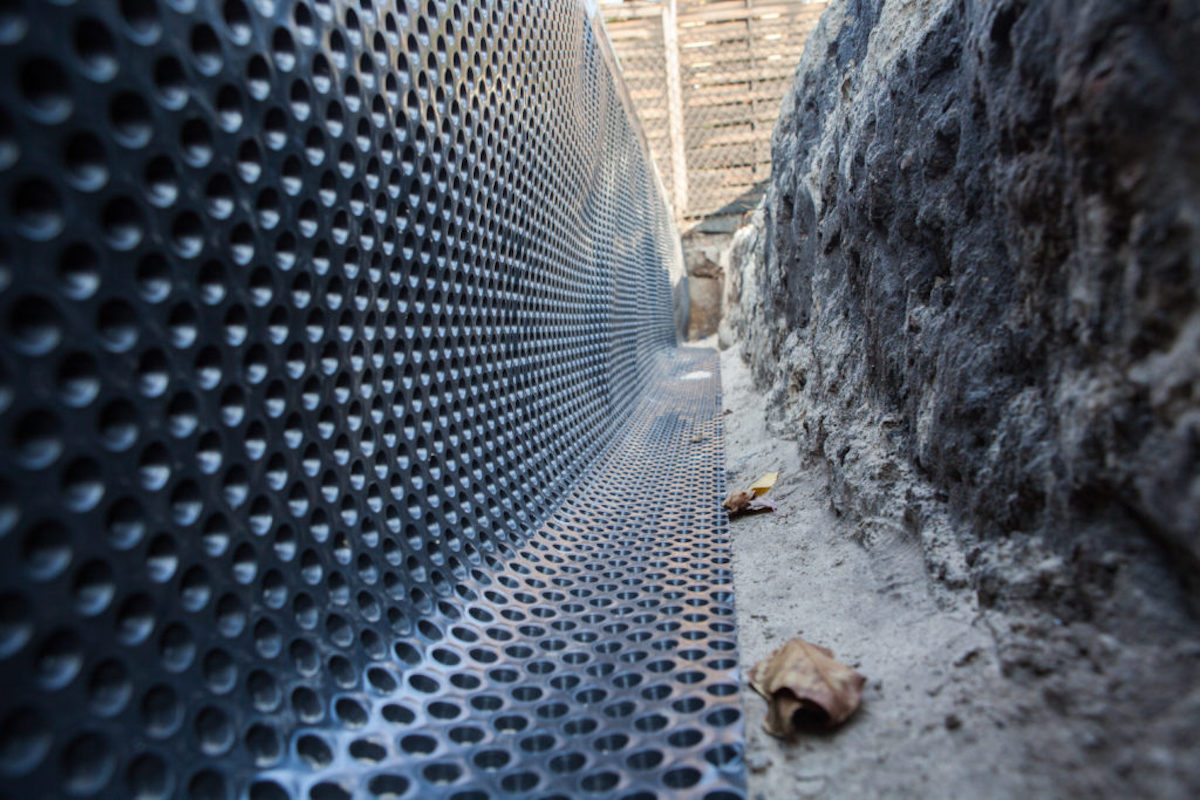Did you know that 40% of all home insurance claims are due to water damage? In most cases, the basement develops leaks and it can provoke damages worth thousands of dollars on average.
This is a good moment to think about exterior waterproofing when it comes to your basement. However, many homeowners consider interior waterproofing. Which one is better and why? Keep reading to find out.
What Is Interior Basement Waterproofing
Interior waterproofing means creating a drainage system to collect water from your basement and direct it away from your house. This is done to prevent serious damages to your foundation and avoid other problems such as mold development, pests, etc.
Interior basement waterproofing is done by adding a mesh system at the lowest point of your basement. This system collects water and drains it outside. It’s not “waterproofing” per se, but it does a good job at keeping your basement dry.
What Are the Advantages and Disadvantages of Interior Basement Waterproofing?
Interior basement waterproofing provides a plethora of benefits. First of all, it causes less disruption on your property in comparison with exterior basement waterproofing. Secondly, it’s less labor-intensive, so the whole project can be finished quicker.
You will also pay less for interior basement waterproofing. As a disadvantage, you might need to remove any personal belongings you have in your basement until the project is complete. The bottom 2 feet of the foundation also need to be exposed and this might require removing flooring, insulation, etc.
What Is Exterior Waterproofing?
Exterior basement waterproofing is also common among homeowners. It involves installing drainage and protection systems around your basement to direct water away from your basement. When this is done correctly, your foundation will remain dry for decades regardless of how much it rains every day.
This type of project is more suitable in places where house foundations are more prone to water damage. Keep in mind that a damaged foundation can be costly to repair and the whole process can take months. It’s better to waterproof the basement altogether and protect the foundation too.
What Are the Advantages and Disadvantages of Exterior Basement Waterproofing?
One of the biggest advantages of exterior basement waterproofing is that it requires little to no preparation. All the work is done outside of your house, so you might not need to move anything outside of your basement.
Exterior waterproofing also involves installing a sealing membrane that keeps your foundation dry. This prevents floods, snow, and excessive rainwater from damaging your foundation as well as entering your basement.
As a downside, exterior basement waterproofing is a bit more costly and requires some landscape removal. For example, you might need to remove some stone steps or staircases around your house. This project also takes longer than interior waterproofing.
So, Which One Fits Your Needs?
As you can see, both interior and exterior waterproofing have their pros and cons. For you as a homeowner, it can be tricky to know exactly what’s best for your basement. That’s why we invite you to contact us today!
We have years of experience when it comes to interior and exterior basement waterproofing. We can work on any type of residential property and you can receive a free quote from us to know what your project will entail.
Don’t Forget The Financial Subsidy to Install
Yes, there are subsidies provided by the City of Windsor to fix your basement. We can help you through the process to make sure you take advantage off them!

